News > Blog
Pass the Mic: Promoting Good Governance and Social Inclusion for Sustainable Access to Water and Sanitation in Ghana
Published 03/22/2024 by Global Communities

By Paula Rudnicka, Sr. Manager for Public Affairs and Regine “Gigi” Dupuy, Sr. Technical Advisor for Governance. Video production by Kallista Zormelo, Digital Content Specialist.
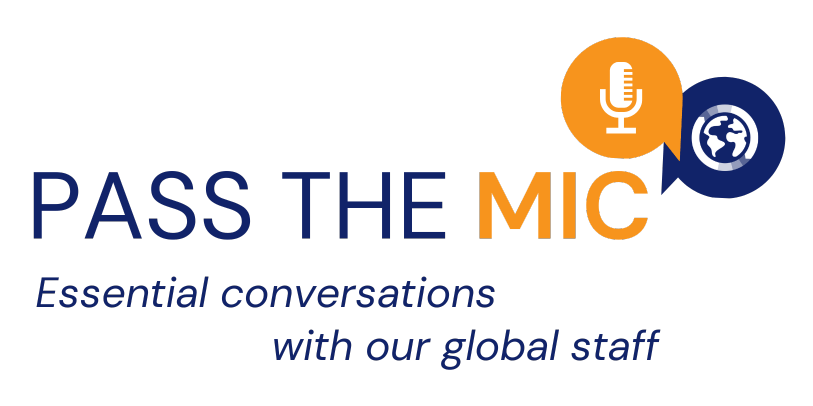
Many people, especially those of us living in wealthier communities of the Global North, rarely think about the intricate ecosystem of policies, institutions and processes which make the magic of water and sanitation happen in our homes. We also rarely think about the systems of power and privilege which dictate who gets access to these vital services and how. “Water is the lifeblood of humanity,” and yet 2 billion people – 26% of the world’s population – do not have access to safely managed drinking water. Toilets saves lives and livelihoods, and yet 3.6 billion people – 46% of the world’s population – lack access to safely managed sanitation. These staggering numbers beg many questions. Who gets to decide where these services are provided, how they are funded and who can access them? How are these decisions made? And what can we do to improve them?
We can find answers to these questions by taking a deeper dive into the concept of water, sanitation and hygiene (WASH) governance, and by exploring how WASH governance is impacted by systemic and structural inequalities.
Recently, Gigi Dupuy, our Senior Technical Advisor for Governance, sat down with Alberto Wilde, our Chief Global Programs Officer, to discuss the importance of good governance in advancing inclusive access to water and sanitation. At the time of the interview, Alberto served as our Country Director in Ghana, where we have a long and rich history of implementing WASH programs. The conversation was edited for length and clarity.
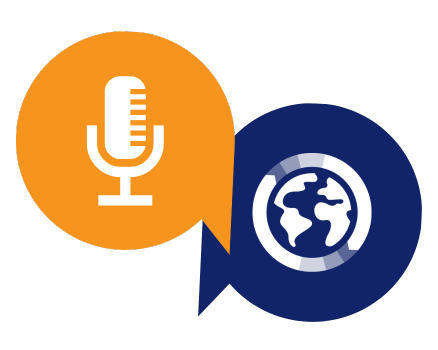
Gigi: Could you share a few words about the history of Global Communities’ WASH programming in Ghana?
![]()
Alberto: Global Communities has been implementing WASH projects in Ghana since 2009. Our first program, WASH for Health, used the Community-Led Total Sanitation (CLTS) approach to help communities achieve the Open Defecation Free (ODF) status. The project is known for introducing Digni-Loo – an affordable, durable and award-winning plastic latrine – and pro-poor sanitation policies and guidelines, which we helped develop. Currently, we are implementing the Enhancing Water, Sanitation and Hygiene (En-WASH) Activity, funded by the United States Agency for International Development (USAID). We conceived this project differently to focus more on the outcomes and not so much on the outputs.
Gigi: Could you explain the difference between WASH outputs and outcomes? Why is focusing on outcomes so important?
![]()
Alberto: In the past, everything was about counting numbers. We counted how many people gained access to water, how many boreholes we drilled or how many toilets we constructed. But these are just numbers. Right now, we focus much more on outcomes, impact and sustainable behavioral change. For example, if you drill a borehole where there is no governance body to oversee its operation and maintenance, it will break down and stop functioning after three years. Similarly, if you convince people to construct a latrine without incentivizing them to use it and clean it, the latrine will collapse after a few years. So, the outcome we are looking for is long-lasting behavior change, grounded in an awareness of how unclean water and open defecation impact people’s health and livelihoods. It is important to understand that positive WASH behaviors lead not only to better health outcomes, but also translate into better income and savings, because people spend less money on healthcare and save their farm animals from getting sick and dying, which often happens when they eat feces. En-WASH is all about transforming communities to be healthier, cleaner and safer in the long run.
Gigi: What is the role of good governance in achieving positive and sustainable WASH outcomes?
![]()
Alberto: Promoting good governance is one of the main components of En-WASH. To achieve long-lasting impact, behavior change needs to occur at all levels, from individuals and families to communities and government leaders. Government agencies, both at the national and local levels, must get better and better at planning and budgeting for adequate WASH services to ensure that international investments are sustainable beyond the life of the program.
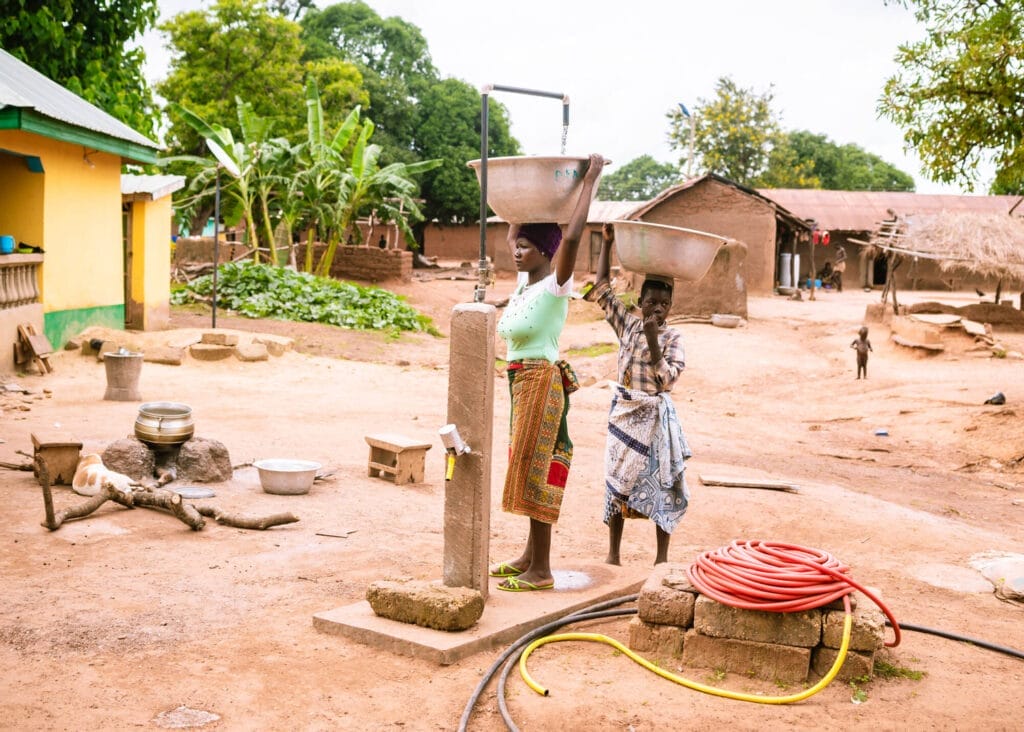
Gigi: What are some of the strategies that you are using to strengthen governance in the WASH sector?
![]()
Alberto: Governance cuts across all sectors and has an immense impact on the quality and accessibility of WASH services, including in health clinics and schools. For example, if a project like En-WASH installs water and sanitation facilities at a school or a clinic, but the administration does not pay the bills or fails to clean the latrines, the water gets cut off and the toilets stop working. Everything goes back to governance. Without good governance, it is very difficult to maintain a lasting change. This is why En-WASH invests significant resources in capacity strengthening interventions. We work very closely with local government officials, school administrators and health facilities to share knowledge about managing WASH services safely and effectively. We are also supporting the government of Ghana to hit important milestones with WASH services. The government is trying to do it, but it is a challenge. Our assistance includes the establishment of monitoring and evaluation systems, which allow governments to track water quality and ensure that there is no backsliding in communities with the ODF status.
Gigi: Who are our main partners within the government of Ghana?
![]()
Alberto: We are providing assistance to the government at all levels, from ministerial and regional to district and community levels. At the national level, our main partner is the Ministry of Sanitation and Water Resources, but we also work with the Ministry of Education through the Ghana Education Services and the Ministry of Health through the Ghana Health Services. Our strongest partnerships are with the metropolitan, municipal and district assemblies (MMDAs). This is where the rubber hits the road. In addition to training and technical assistance, we offer financial support if these agencies lack adequate equipment and materials to fulfill their WASH mandates.
Gigi: Does the government of Ghana allocate sufficient resources to WASH? Could you shed more light on the public financial management in the WASH sector?
![]()
Alberto: In general, the WASH sector in Ghana has been under-resourced for a long time. Some funding for WASH services comes from the central government, but otherwise funds are generated at the district level from tax revenues. But this is not enough. These funds may be sufficient to cover operational costs, but there is typically no money for expansion or new services. The government has many priorities, and while access to water is high on their list, sanitation is not so high. The international community has been filling some gaps, but sanitation is still way behind. We are actively advocating for more sanitation funding from the central, regional and district governments. If they can allocate more resources to sanitation, that would be fantastic! It is important to note that sanitation is not a priority for most people, even at the individual and household levels. The top priority is usually food, then water, maybe education and clothing. Sanitation is one of the last priorities. And this is something we are trying to change.
Gigi: I imagine citizen participation is key in advocating for more resources for WASH. Could you talk about how Global Communities is promoting civic engagement?
![]()
Alberto: Our name says it all. We are Global Communities, and we work very closely with the communities we serve. We strive to be as inclusive as possible and we involve a wide range of stakeholders, from Members of the Parliament and village chiefs, through civil society and faith-based organizations, to women’s and youth’s groups. We bring them to the table, and we try to make all the processes as participatory as possible. It is the citizens who know best what is needed in their communities, and they must be given the opportunity to advocate for their needs and priorities. Their voice matters in advocating for more funds, and in the prioritization of these funds. If a water point is needed in a healthcare facility or in a school, then the district assembly should fund it. All that planning and budgeting is not viable without involving the community. It must be participatory.
Gigi: Are the communities we work with interested in being involved?
![]()
Alberto: Yes, the citizens are willing to participate. We have found that in most cases, they are the ones who have the solutions. We don’t have to come up with magic solutions brought from the other side of the world. They have them. They know what they need, and they know what to do. They just need the facilitation and a little push to get to the other side. And this is where we come in and play that catalytic role to make it happen.
Gigi: How does Global Communities integrate gender, social inclusion and youth considerations in En-WASH?
![]()
Alberto: We have gender equality and social inclusion components in everything we do. For example, we facilitate Village Savings and Loans Associations (VSLAs) to increase women’s financial inclusion. Through VSLAs we have learned that women are often better managers than men, and we have invested a lot of effort in promoting women’s participation. We also involve people living with disabilities, youth and the elderly. We have a very inclusive approach, focusing on the most vulnerable groups from the poorest quintiles.* We not only include them as much as possible, but we also advocate for them to have free water or latrines. Sometimes we donate equipment, like the Digni-Loo, and the communities construct the latrines for them. En-WASH has a dedicated Gender and Youth Advisor, and we have recently completed a Gender Equality and Social Inclusion (GESI) Analysis to better understand gender norms and power dynamics which influence the accessibility, responsiveness and sustainability of WASH services in northern Ghana.
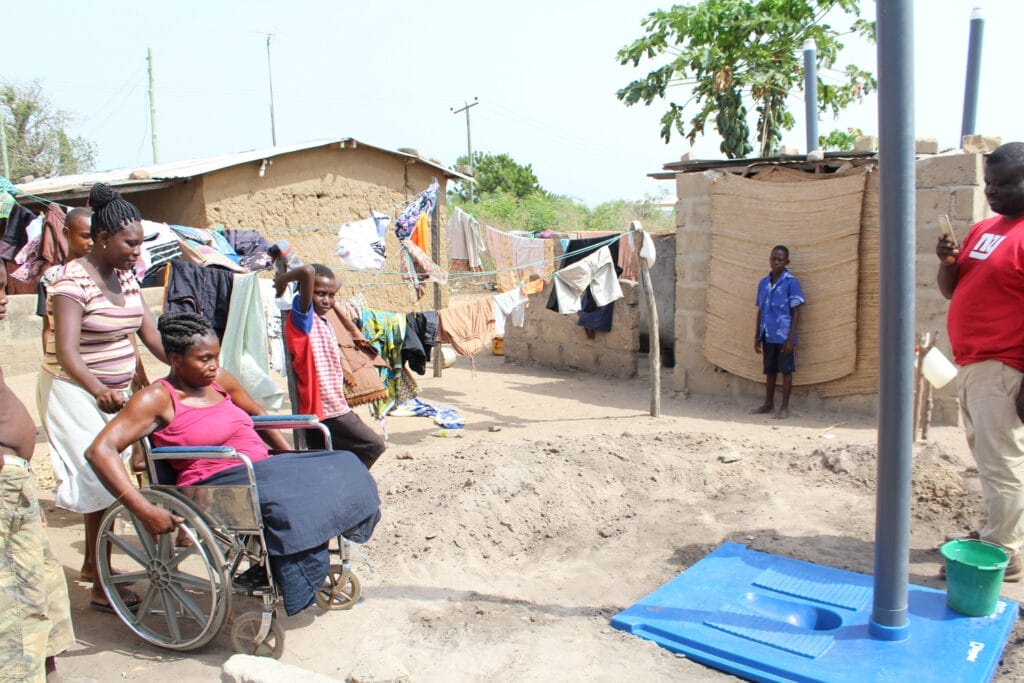
Gigi: You mentioned that Global Communities has supported the government of Ghana in the development and implementation of the pro-poor sanitation guidelines. This sounds very interesting. Could you expand on this?
![]()
Alberto: When we started our previous WASH for Health project, our mandate was to build latrines using the CLTS methodology. This approach empowers communities and individuals to construct their own latrines but does not provide any subsidies. When we began applying this methodology, I realized that people would build latrines with whatever materials they had available, and they were not sustainable. After a few rains or a few months, these latrines would collapse because they were not properly constructed. That was a big problem, causing a relapse in ODF communities. We then started analyzing the income quintiles, and we noticed that the government and other implementing organizations were providing sanitation subsidies to the top quintiles. The lowest quintiles were forgotten, which was unfair. This is when I came up with the idea of designing the Digni-Loo, which is one of the most affordable and sustainable sanitation solutions in northern Ghana. Yet, with a price tag of approximately USD 100, the solution was still out of reach in the poorest quintiles. I quickly realized that we needed to find a fair way to subsidize these latrines. We looked at the legal framework, and we could not find any criteria for determining who might qualify for these subsidies. This sparked the idea of working with the Ministry of Sanitation and Water Resources to develop the “Guidelines for Targeting the Poor and Vulnerable for Basic Sanitation Services.” These guidelines promote equitable access to sanitation services and help mitigate the risk of conflict in the communities.
Gigi: What was the process for developing and implementing these guidelines?
![]()
Alberto: We worked hand in hand with the Ministry of Sanitation and Water Resources and we facilitated a series of stakeholder meetings. Everyone in the sector participated. The guidelines were released in 2018. We continue to work with the government to ensure a robust dissemination of these guidelines and their effective implementation.
Gigi: Is there anything you would like to add?
![]()
Alberto: The WASH sector in Ghana is very active, and Global Communities is recognized as one of the key players. It’s not one organization’s job or just the government’s job to advance WASH goals. It is a common goal that we all have. There are a lot of meetings and a lot of communication within the sector. There are meetings of international organizations held by the Coalition of NGOs in Water and Sanitation (CONIWAS). There are inter-ministerial coordination meetings, and meetings of donors and implementing partners. And once a year, there is a conference organized by CONIWAS, which is a great platform for all stakeholders to voice their opinions, voice their ideas, and for the government to listen. In Ghana, the government really listens to the sector and opens the doors for improvements. We have three years left in the En-WASH program. We will continue to participate in these platforms and do as much as possible to contribute, to support the government, and to fill the gaps we have identified.
Gigi: Thank you for your time! How can our audiences learn more about our work in Ghana?
![]()
Alberto: To learn more about Global Communities’ work in Ghana please visit our website and explore our visual story, Nsuo Helps Our Life. If you have questions about our programs, please email us at [email protected]. You can also find me on LinkedIn.
* Income quintile is the ratio of total income received by the 20% of the population with the highest income (the top quintile) to that received by the 20% of the population with the lowest income (the bottom quintile).
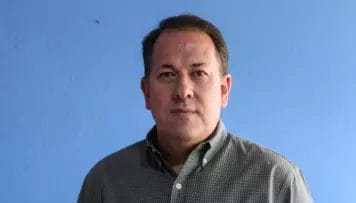
Alberto Wilde
Alberto Wilde joined Global Communities in 2003 and currently serves as the Chief Global Programs Officer. He has a Master’s Degree in Corporate Finance and more than 26 years of experience in project management, finance, and business administration. Alberto has successfully implemented complex and multi-dimensional projects in economic development; governance; capacity building; water, sanitation, and hygiene; and small, medium, and large infrastructure in Bolivia, Haiti, and most recently in Ghana.
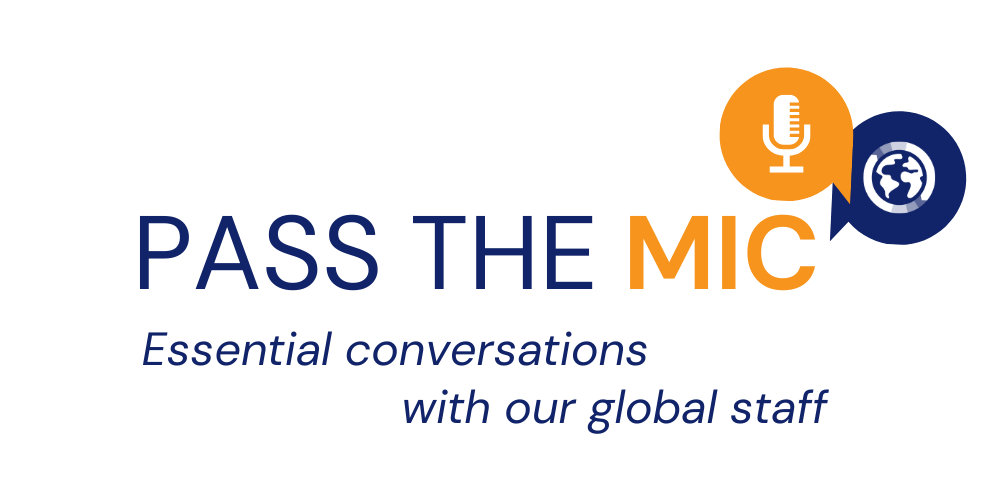
Global Communities is home to a diverse team of professionals with a broad range of expertise and perspectives that help us build the world we envision: one of expanded opportunity, where crises give way to resilience and all people thrive. In our new “Pass the Mic” series, our global staff share innovative ideas and in-depth insights on timely topics spanning the development, humanitarian and peace nexus. Learn how our colleagues are co-creating a more just, prosperous and equitable global community.





